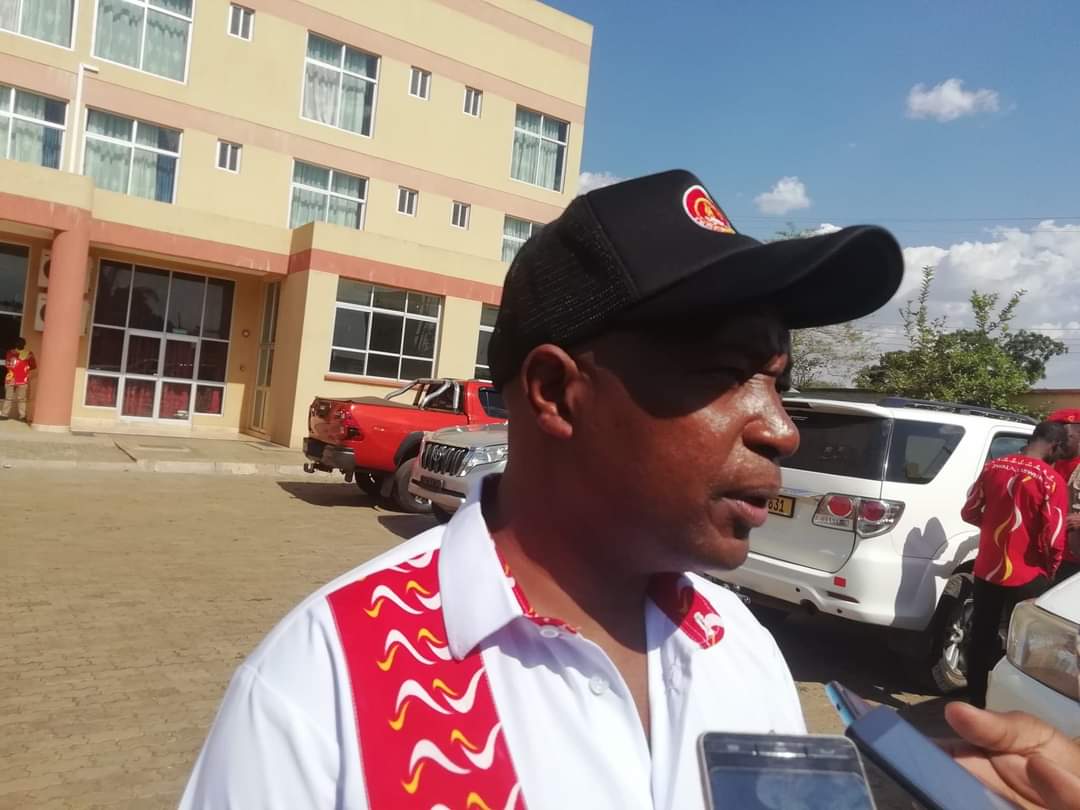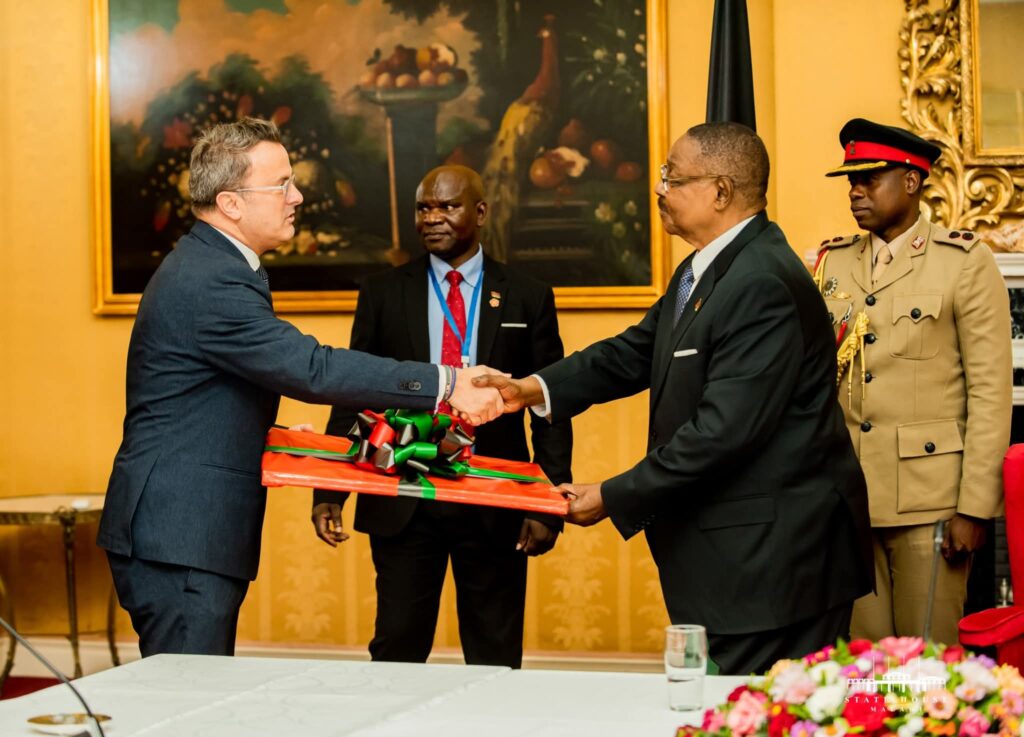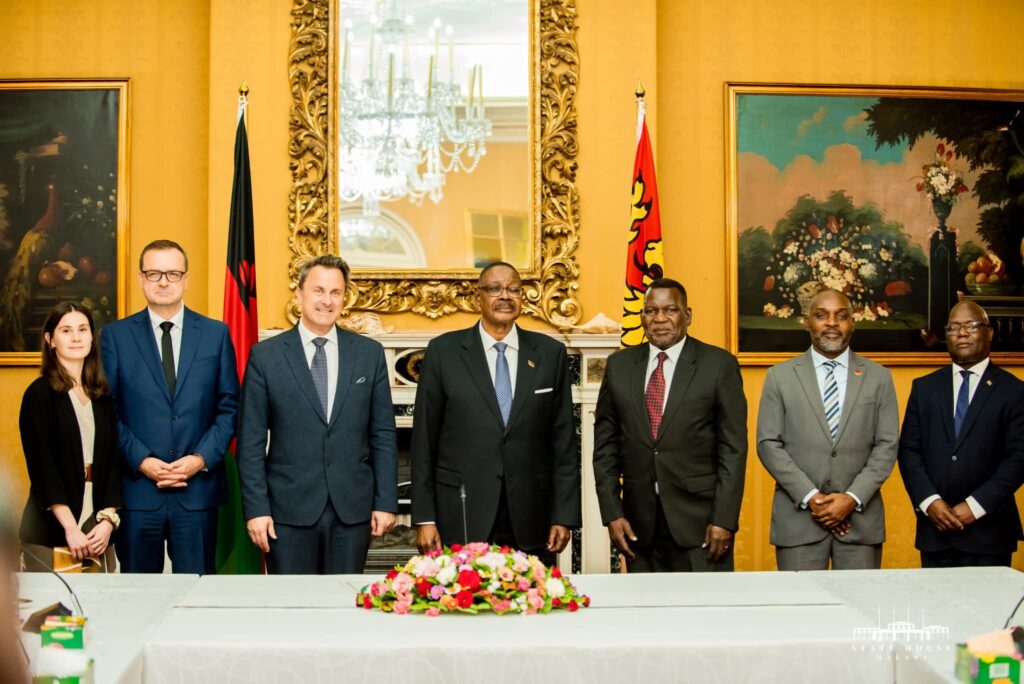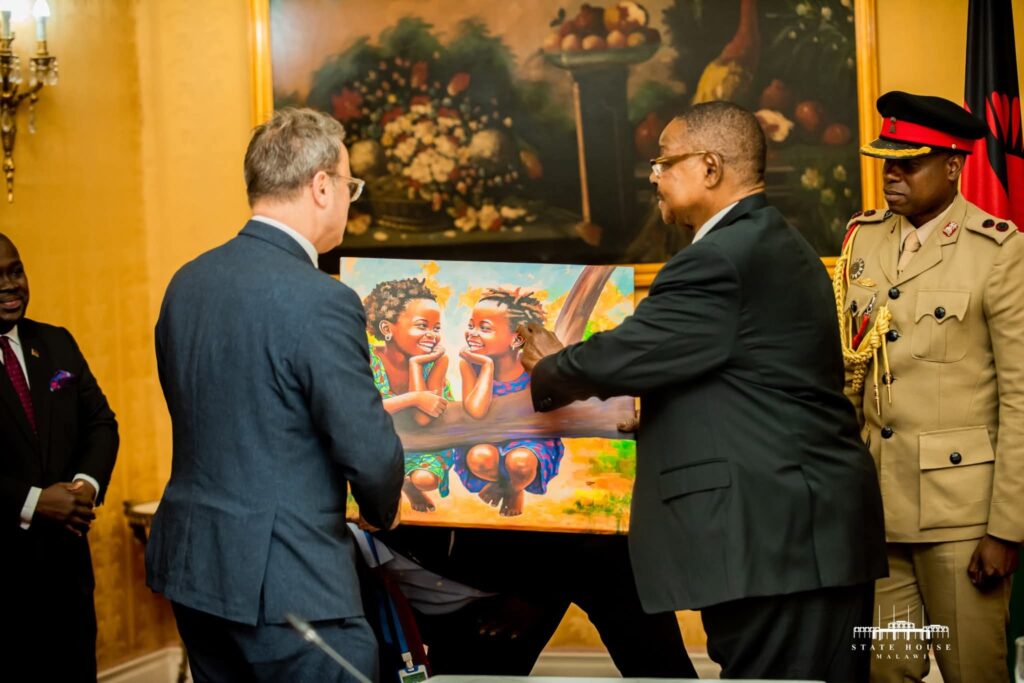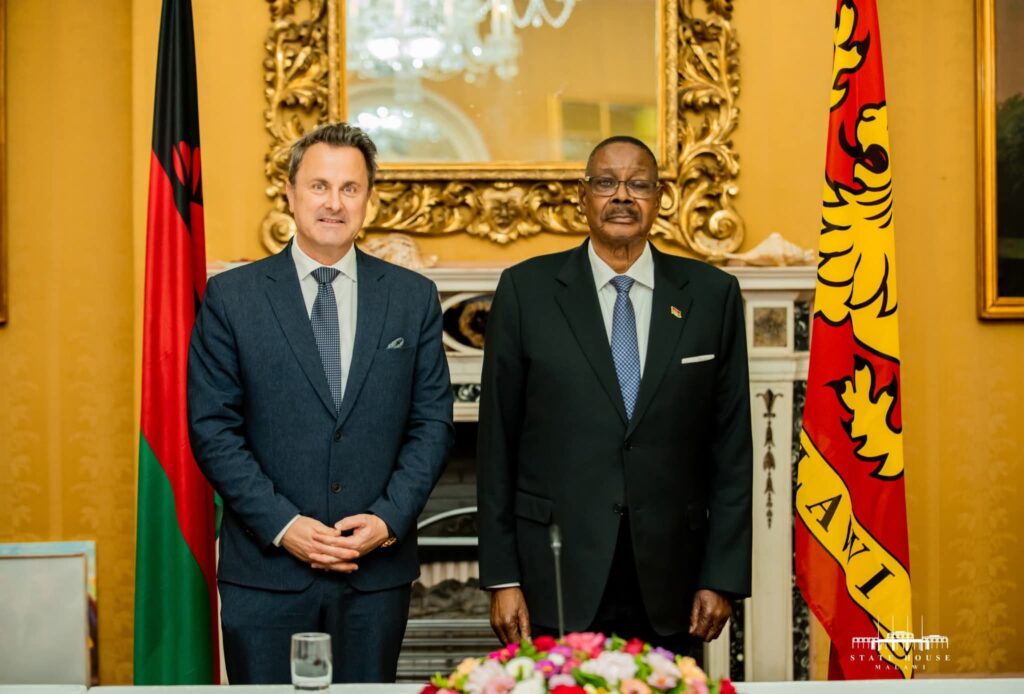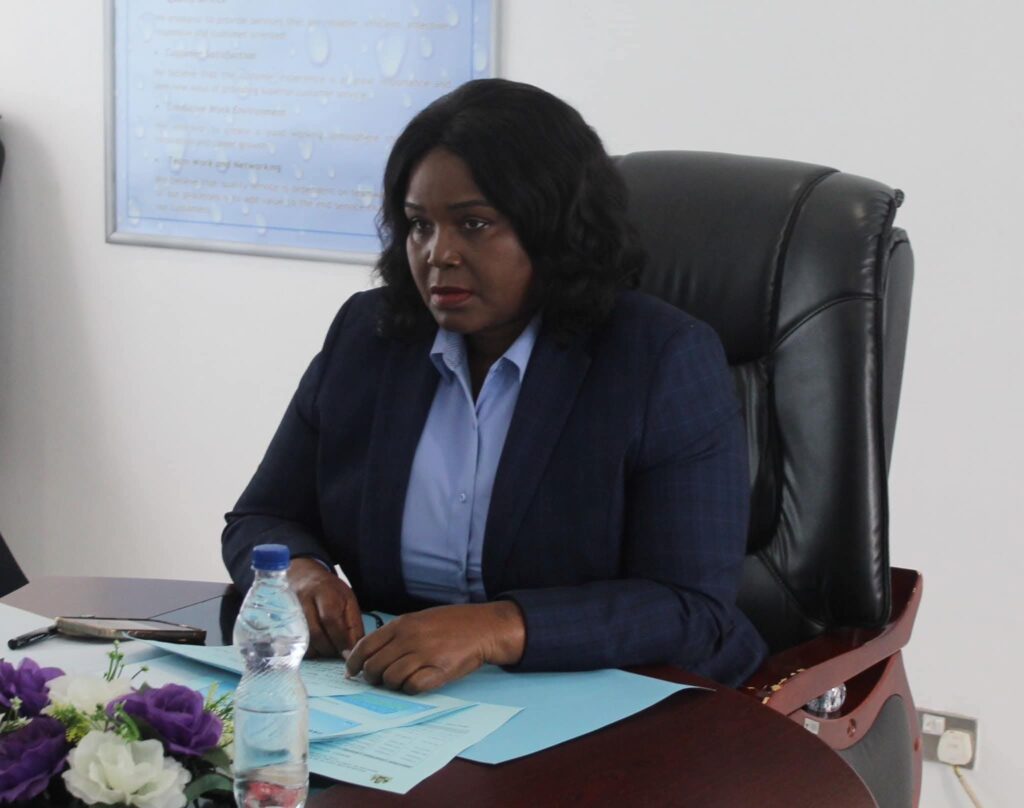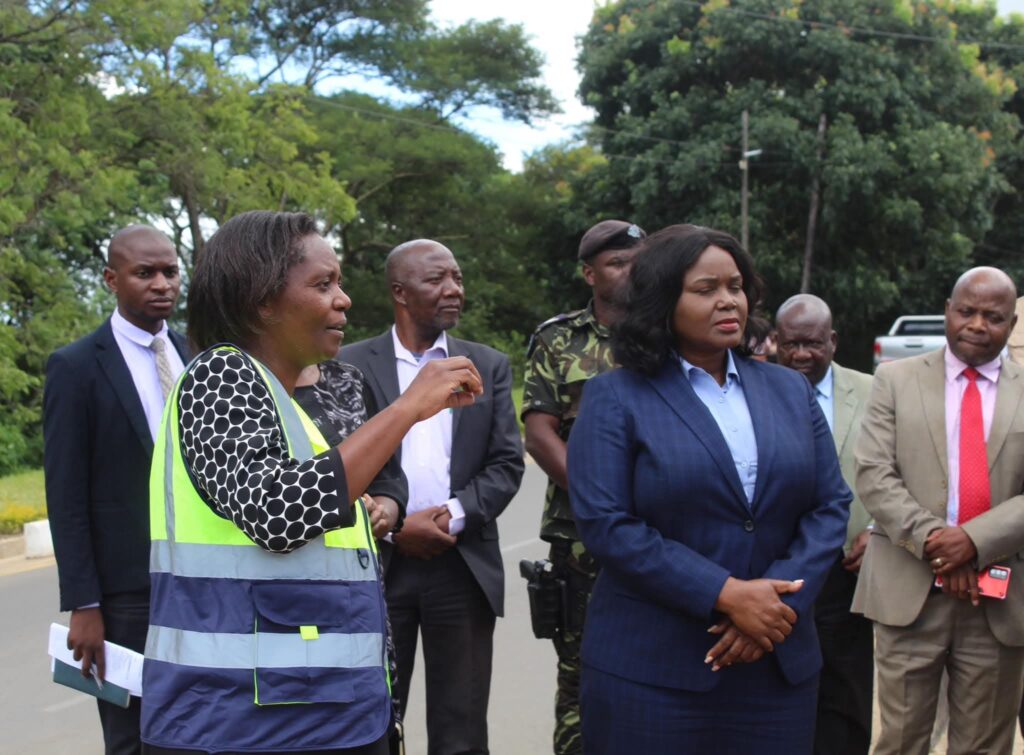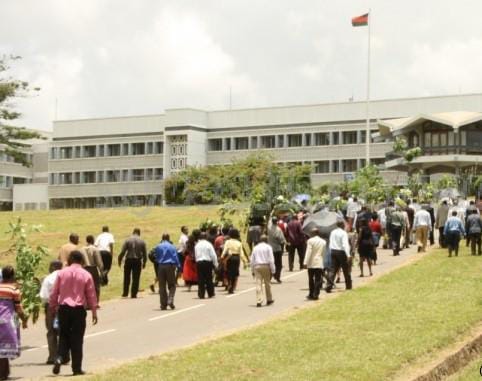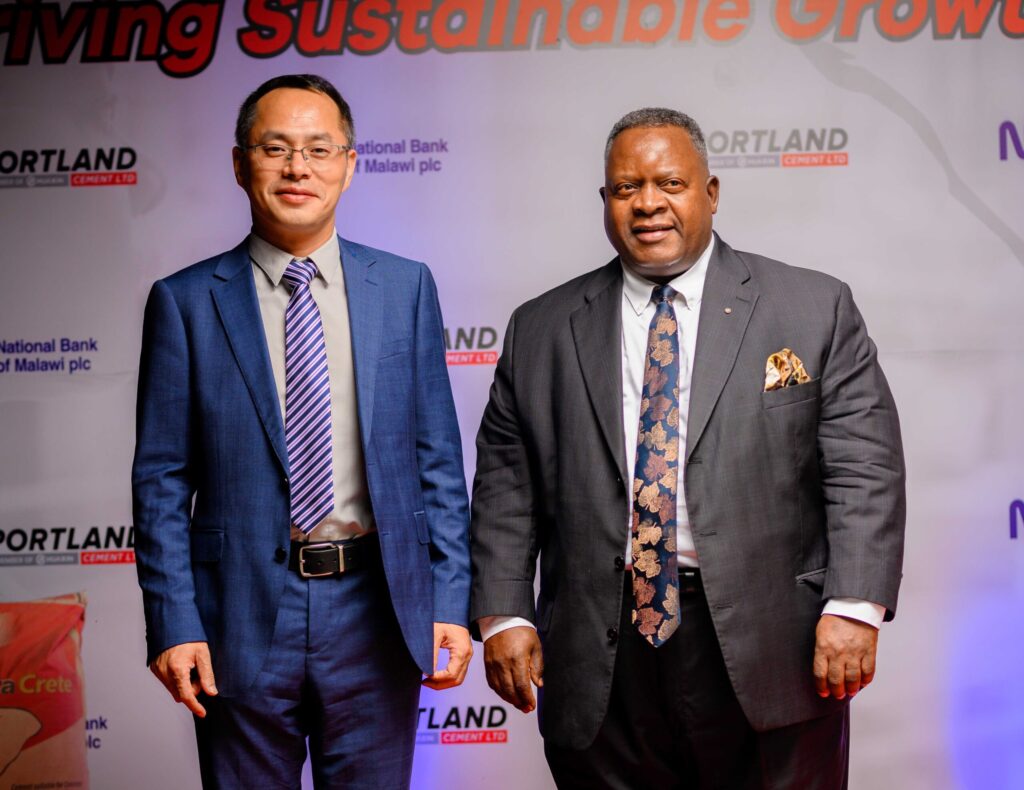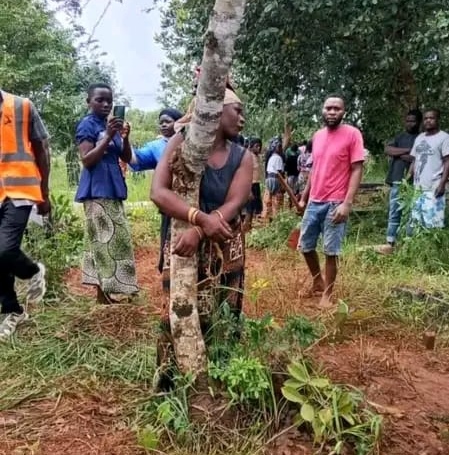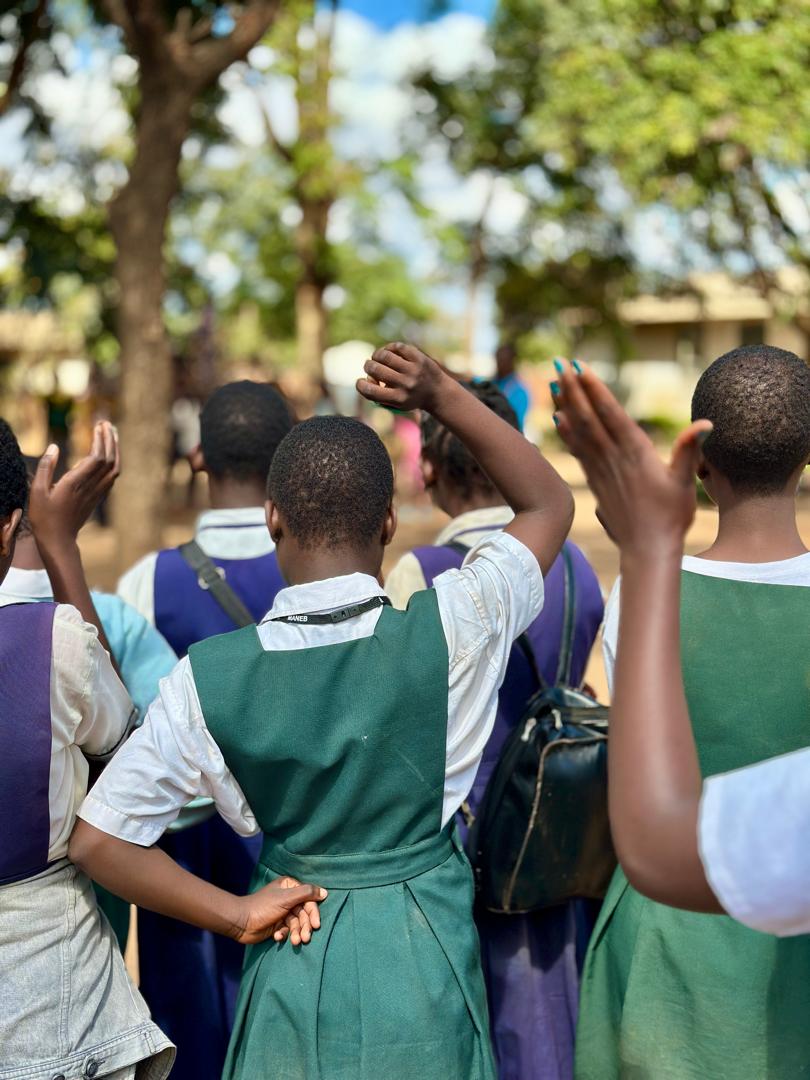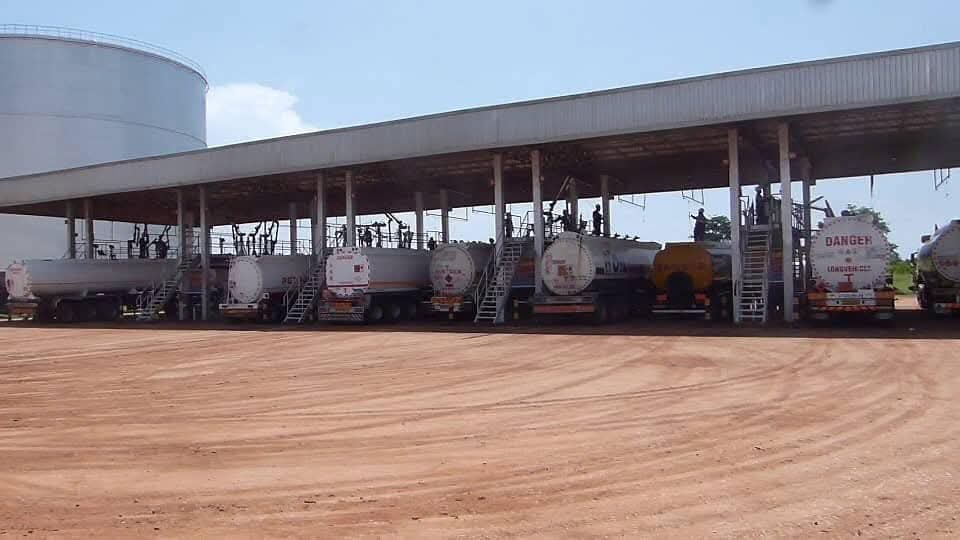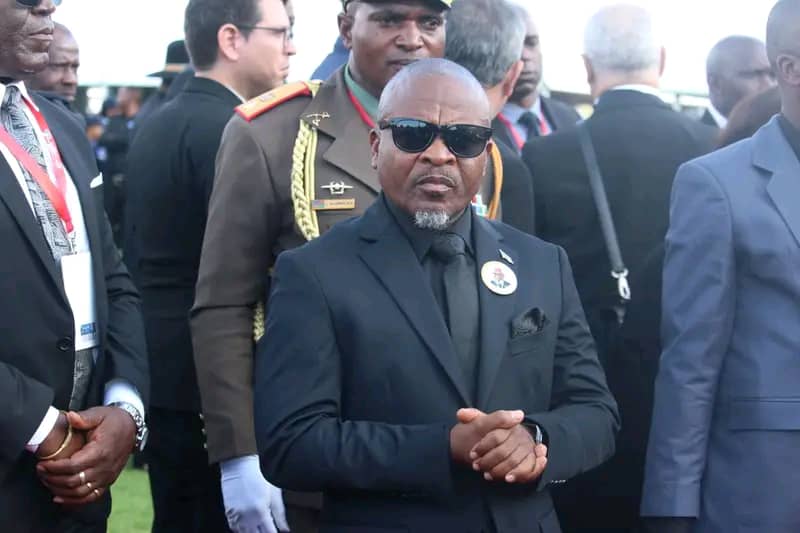Dalitso Kabambe, one of the presidential aspirant for the UTM party, has called on delegates to vote for visionary leaders at the upcoming elective conference.
Speaking to Bua Central Region delegates in Kasungu District, he expressed confidence in his ability to lead the party to victory in the 2025 general elections.
“I’m very optimistic that if I am voted into the UTM presidential seat and win next year’s polls, my experience will help address the challenges Malawians face today,” Kabambe stated.
UTM Bua Central Region Governor Gerald Mbewe hailed Kabambe’s remarks, underscoring the need for intelligent leadership to ensure the party’s success.
The UTM party’s 2024 elective conference is scheduled for November 17.
Other news
- Mutharika Courts Luxembourg Investment as Bettel Visit Signals Stronger Bilateral Tiesby By Suleman Chitera

By Suleman Chitera
President Professor Arthur Peter Mutharika has described the visit by Luxembourg’s Deputy Prime Minister, Xavier Bettel, as a strong signal of the European nation’s commitment to deepening bilateral relations with Malawi.
Speaking at Kamuzu Palace in Lilongwe on Monday, where he held an audience with the visiting Deputy Prime Minister, Mutharika said the engagement reflected growing mutual interest in cooperation that can drive Malawi’s economic transformation.

During the meeting, Mutharika outlined his long-term vision for the country, emphasising the need to shift Malawi from a largely importing and consuming economy to one that produces and exports competitively.
He acknowledged that the country is currently grappling with immediate challenges, including food insecurity, fertilizer shortages, foreign exchange constraints and fuel supply issues, but noted that measures are being taken to address these problems while stabilising the economy.

“Our focus is on reducing inflation and lowering interest rates so that businesses can grow and the economy can recover,” Mutharika said.
He took the opportunity to invite Luxembourg investors to consider Malawi as a viable investment destination, citing peace, political stability, a hardworking and well-educated labour force, and investor-friendly policies as key advantages.
“I therefore invite you and Luxembourg investors to set up companies in Malawi. The country has a conducive environment for investment,” he said.
On the diplomatic front, Mutharika extended Malawi’s best wishes to Luxembourg in its bid for a non-permanent seat on the United Nations Security Council. He also highlighted Malawi’s growing role in regional peace and security, noting that the country currently chairs the Southern African Development Community (SADC) Troika on Politics, Defence and Security Cooperation and is on course to join the African Union Peace and Security Council.
In his remarks, Deputy Prime Minister Bettel congratulated Mutharika on his electoral victory, describing the level of support he received as a rare demonstration of public trust.
Bettel said Luxembourg is keen to work closely with Malawi to help translate the President’s vision into tangible development outcomes, adding that his visit was aimed at exploring areas of cooperation that would benefit both countries.
The visit is expected to lay the groundwork for enhanced political, economic and development cooperation between Malawi and Luxembourg.
- Mbilizi Orders BWB to Halt Water Tariff Hike, Demands Efficiency Reformsby By Suleman Chitera
By Suleman Chitera
Minister of Agriculture, Irrigation and Water Development, Roza Mbilizi, has ordered the Blantyre Water Board (BWB) to suspend plans to increase water tariffs, insisting the utility must first address inefficiencies and financial mismanagement before passing costs on to consumers.

Mbilizi issued the directive on Monday during a visit to BWB offices, where she criticized the board for what she described as a lack of accountability to its customers. She argued that BWB was unfairly shifting the burden of its internal failures onto residents.
“We should not look for the easy way out by transferring this huge responsibility onto customers,” Mbilizi said. “There are other areas that can generate revenue, such as reducing non-revenue water, which currently stands at 44 percent, and collecting the K23 billion owed to the board. Only after addressing these issues can we discuss increasing prices for customers.”
The Minister warned BWB management that failure to improve performance would have consequences, stressing that their core mandate is to provide reliable and safe water to the public.
“Why do you want it to be normal for residents to face frequent water supply disruptions? Why do you play with people’s lives?” she asked. Mbilizi further described it as “embarrassing” that Malawi continues to experience cholera outbreaks linked to poor water management.
She also questioned the board’s expenditure patterns, noting that BWB has reportedly been operating at a loss for more than five years without resolving fundamental operational challenges.
Responding to the concerns, George Eneya, speaking on behalf of the BWB board, acknowledged the Minister’s criticisms and said the newly constituted board has already directed management to improve performance.
“The Minister is right. It is unheard of to lose 44 percent of what is generated,” Eneya said. “We have given management a six-month target to reduce water losses, improve debt collection and enhance service delivery. We are also working towards ending frequent water supply disruptions in Blantyre.”
The Minister’s intervention comes amid growing public frustration over erratic water supply and proposed tariff increases, with consumers demanding better service delivery before any price adjustments are considered.
- Upholding integrity: The power of honest and professional public serviceby By Burnett Munthali
By Burnett Munthali
Working honestly and professionally in public office is crucial for building trust and ensuring the effective delivery of services to citizens. When public officials prioritize integrity, they set a positive tone for the entire government and inspire confidence in the system.
Dishonesty and corrupt practices, on the other hand, can have far-reaching consequences, undermining the very fabric of society and perpetuating inequality. It’s essential for public officials to recognize that their actions have a ripple effect, influencing the behavior of others and shaping the country’s moral landscape.
Calling out squishy behavior, such as conflicts of interest, embezzlement, and nepotism, is critical to maintaining accountability and promoting good governance. By speaking out against wrongdoing, citizens and public officials can work together to create a culture of transparency and zero tolerance for corruption.
Correct practices, such as merit-based appointments, transparent procurement processes, and robust financial management systems, are essential for ensuring that public resources are used efficiently and effectively. When public officials adhere to these principles, they demonstrate their commitment to serving the public interest.
Lessons from public officials who have left office can be particularly valuable, offering insights into the consequences of their actions and the importance of maintaining integrity even after leaving public service. By sharing their experiences, they can inspire others to prioritize ethics and professionalism in their own work.
For Malawians, the importance of working honestly and professionally in public office is clear. By upholding the highest standards of integrity, public officials can help build a more just and equitable society, where everyone has access to opportunities and resources. It’s time for Malawians to demand more from their leaders and to hold them accountable for their actions.
Ultimately, the onus is on public officials to lead by example, demonstrating a commitment to honesty, transparency, and professionalism in all aspects of their work. By doing so, they can help create a brighter future for Malawi, one built on the principles of good governance, accountability, and integrity.
As citizens, we must also recognize our role in promoting a culture of transparency and accountability. By speaking out against corruption and demanding better from our leaders, we can work together to build a society that values honesty and professionalism.
In the end, it’s not just about individual leaders or officials; it’s about creating a system that promotes integrity and rewards good behavior. By working together, we can build a Malawi that is just, equitable, and prosperous for all.
- NBM plc, Portland Cement team up to cut cement importsby By Suleman Chitera
By Suleman Chitera
National Bank of Malawi (NBM) plc and Portland Cement Malawi have reaffirmed their commitment to rolling out initiatives that strengthen the country’s cement supply chain, improve access to financing for distributors, and reduce reliance on imported cement.
The collaboration follows the signing of a Memorandum of Understanding (MoU) between the two institutions in Blantyre in October last year, aimed at supporting procurement, transportation, wholesaling, and retailing of cement products nationwide.
Speaking on the ongoing partnership at the cocktail event in Lilongwe on Friday, NBM plc Board Chairperson Grant Kabango said the MoU has established a strong relationship between the bank and the cement industry through Portland Cement.
“The idea is to facilitate the procurement, distribution, transportation, wholesaling, and retailing of cement products. Our colleagues at Portland Cement have established a production plant in Malawi, which is now feeding into the national supply line. As a result, Malawi can significantly reduce the importation of cement from other countries, thereby conserving foreign exchange,” said Kabango.
He added that the Bank has established a number of financial facilities suited to each stage of the supply chain.
“Transporters are now able to acquire what they need, while distributors and wholesalers are also accessing the financing required to ensure that their businesses operate smoothly,” he said.
He added that since signing the MoU in October last year, about K3.2 billion has already been utilised in Blantyre alone.
“We are seeing strong demand coming through, and that is why we have now moved into the Central Region because of the promising results recorded in Blantyre. Portland Cement has also opened a depot in Kanengo, which means we anticipate receiving even more financing requests from businesses requiring support through the National Bank of Malawi plc,” he said.
Kabango emphasized that cement is not a seasonal product and explained that the bank is fully prepared to finance supply chain activities whenever client’s approach, noting that it has adequate resources to meet the growing demand.
Portland Cement Chief Executive Officer (CEO) Jianguo Liu emphasised, the impact of the Balaka plant on cement production.
“After we commissioned our Balaka plant, we have increased cement production. Our Balaka plant alone has increased cement production capacity by 800,000 tonnes per year. By our estimates, that represents almost 60 to 70 percent of the country’s total cement consumption as of last year,” said Liu.
He added that the partnership with NBM plc is expected to make it easier for distributors and retailers to access financing, both through credit and improved cash flow management, ultimately fostering mutual growth.
On investment, Liu revealed that the Balaka plant cost 100 million US dollars, or about K200 billion .
“The plant has already been commissioned. This means Malawi now has enough cement production capacity. We are confident that we can provide a reliable cement supply and avoid shortages,” he said.
Portland commissioned its cement manufacturing plant in Balaka District with capacity of 200,000 metric tons
- Mob Justice in the Name of Culture: Action Hope Malawi Condemns Brutal Abuse of Woman in Mzuzuby By Suleman Chitera
By Staff Reporter
Human rights organisation Action Hope Malawi has strongly condemned a shocking act of mob justice in Nkholongo Township, Mzuzu City, where a woman was allegedly tied to a tree at a graveyard for failing to attend a local funeral ceremony.
In a statement released on Monday, the organisation described the incident as a gross violation of human rights, an act of lawlessness, and a clear case of violence against women, warning that such behaviour has no place in a democratic society governed by the rule of law.
Action Hope Malawi said the act not only stripped the woman of her dignity but also exposed her to severe psychological trauma, adding that she urgently requires mental and psychosocial support following the ordeal.
“This is barbaric and unacceptable. No individual or group has the authority to punish another person outside the law,” reads part of the statement.
The organisation further dismissed any attempt to justify the abuse on cultural grounds, stressing that no cultural belief or practice supersedes the laws of Malawi.
Action Hope Malawi has since called on the Malawi Police Service to swiftly arrest and prosecute all those involved in the incident, warning that failure to act decisively would embolden similar acts of mob violence.
The group has also urged the Malawi Human Rights Commission (MHRC) to immediately intervene and ensure the victim’s rights are protected, while closely monitoring the case to guarantee accountability.
The incident has sparked public outrage, with rights activists warning that silence or inaction would normalize violence, particularly against women, under the guise of tradition.
As pressure mounts, Malawians are now waiting to see whether law enforcement authorities will act firmly to reaffirm that justice in Malawi is delivered in courts of law—not at graveyards, and not by mobs.

